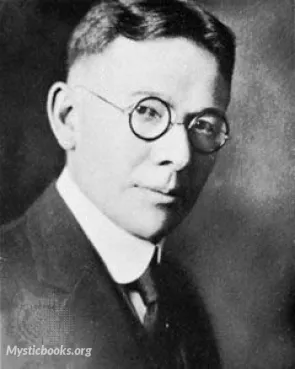
Genetic Studies of Genius, Volume 1: Mental and Physical Traits of a Thousand Gifted Children
by Lewis Terman
'Genetic Studies of Genius, Volume 1: Mental and Physical Traits of a Thousand Gifted Children' Summary
"Genetic Studies of Genius, Volume 1: Mental and Physical Traits of a Thousand Gifted Children" is a seminal work by American psychologist and educational researcher, Lewis Terman. First published in 1926, this book presents a detailed study of the characteristics and traits of 1,000 intellectually gifted children, whom Terman had been following since the early 1920s.
Terman's primary aim in this book was to study the development of giftedness in children and to understand the role of heredity and environment in shaping intellectual ability. In order to achieve this, he selected a group of gifted children, whom he called the "Termites," and studied their physical, mental, and social development over several years.
One of the key findings of Terman's study was that gifted children were not socially or emotionally maladjusted, as had previously been assumed. On the contrary, he found that the Termites tended to be well-adjusted and successful in their adult lives, with many achieving outstanding success in their fields of expertise.
Terman's study also revealed that giftedness was largely inherited, but that environmental factors such as education and opportunity also played a role in shaping intellectual potential. He argued that gifted individuals had a responsibility to use their abilities for the betterment of society, and that education had a key role to play in developing and nurturing giftedness.
"Genetic Studies of Genius" is a landmark work in the field of intelligence research, and has had a significant impact on the study of giftedness and talent. The book is notable for its use of longitudinal data, which allowed Terman to study the development of the Termites over time, and for its pioneering use of statistical methods in psychology.
Today, "Genetic Studies of Genius" remains a seminal work in the field of intelligence research and continues to be widely read and cited by researchers in the fields of psychology, education, and genetics. The book offers important insights into the development of giftedness, the interplay of heredity and environment, and the potential of intelligence testing to shape educational policy and practice.
In summary, "Genetic Studies of Genius, Volume 1: Mental and Physical Traits of a Thousand Gifted Children" is a fascinating and important work by Lewis Terman that offers valuable insights into the development of giftedness and the role of heredity and environment in shaping intellectual potential. The book remains relevant today and is a must-read for anyone interested in the history of intelligence research and the study of giftedness.
Book Details
Language
EnglishOriginal Language
EnglishPublished In
1926Genre/Category
Tags/Keywords
Authors

Lewis Terman
United States
Lewis Madison Terman (1877-1956) was a renowned American psychologist and educational researcher, best known for his pioneering work in intelligence testing and for his influential studies of gifte...
Books by Lewis TermanDownload eBooks
Listen/Download Audiobook
- Select Speed
Related books

Wilderness Babies by Julia Augusta Schwartz
In "Wilderness Babies," Julia Augusta Schwartz unveils a captivating anthology of true stories, unveiling the awe-inspiring tales of animal mothers an...

Bird Stories from Burroughs by John Burroughs
This delightful collection of bird stories by John Burroughs, a renowned nature essayist, offers a captivating glimpse into the world of birds. Each c...

For the Birds by U. S. Fish and Wildlife Service
This book, published by the U.S. Fish and Wildlife Service, provides a comprehensive guide to attracting and observing birds in your own backyard. It...

The Honour of the Gout by Philander Misaurus
It is a satirical pamphlet written by an anonymous author under the pseudonym Philander Misaurus. The pamphlet is a witty and humorous critique of soc...

Trees Every Child Should Know by Julia Ellen Rogers
This book, written for children, offers an engaging and informative introduction to the world of trees. With clear explanations and illustrations, it...

Greek Athletics by Frederick Adam Wright
The history of Greek athletics as it pertains to the Olympics. Describes various activities such as boxing, wrestling, etc. and accounts from witnesse...

Mental Fascination by William Walker Atkinson, Theron Q. Dumont
This book looks at the Followers of the New Thought movement of the early 20th century who believed in the concept of "mind over matter," It introduce...

The Children's Book of Birds by Olive Thorne Miller
Embark on an enchanting journey into the fascinating world of feathered friends with "The Children's Book of Birds" by Olive Thorne Miller. This delig...

Birds and Nature, Vol. VIII, No 4, November 1900 by Various
This volume of "Birds and Nature" is a compilation of short poems, descriptions of birds, animals, and other natural subjects. Each piece is accompani...

Birds and All Nature, Vol. V, No 4, April 1899 by Various
'Birds and All Nature' was a monthly magazine published from 1897 to 1907, exploring various facets of the natural world. Each issue presented short p...
Reviews for Genetic Studies of Genius, Volume 1: Mental and Physical Traits of a Thousand Gifted Children
No reviews posted or approved, yet...